Посібник з інтенсивного навчання англійської мови (для студентів внз спеціальності початкова освіта) Частина перша Київ 2013 удк ббк
 Скачать 5.32 Mb. Скачать 5.32 Mb.
|
|
2  .6. The Present Continuous Tense .6. The Present Continuous TenseS 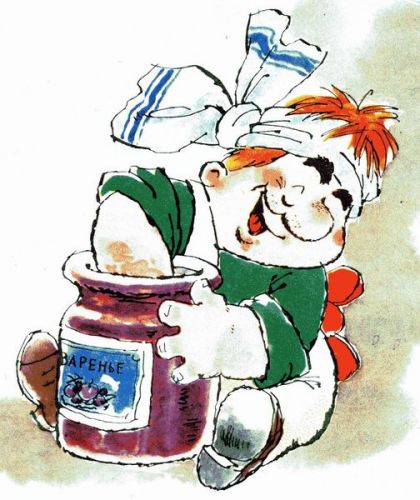 tudy this example situation. Carlson is sitting on the floor. He is holding a jam jar. He is eating some jam. It means: He is eating jam now, at the time of speaking. The action has not finished yet. Revision 1: Study the table of the present tenses.
Revision 2: Study grammar references first then the situations when the present continuous tense is used. 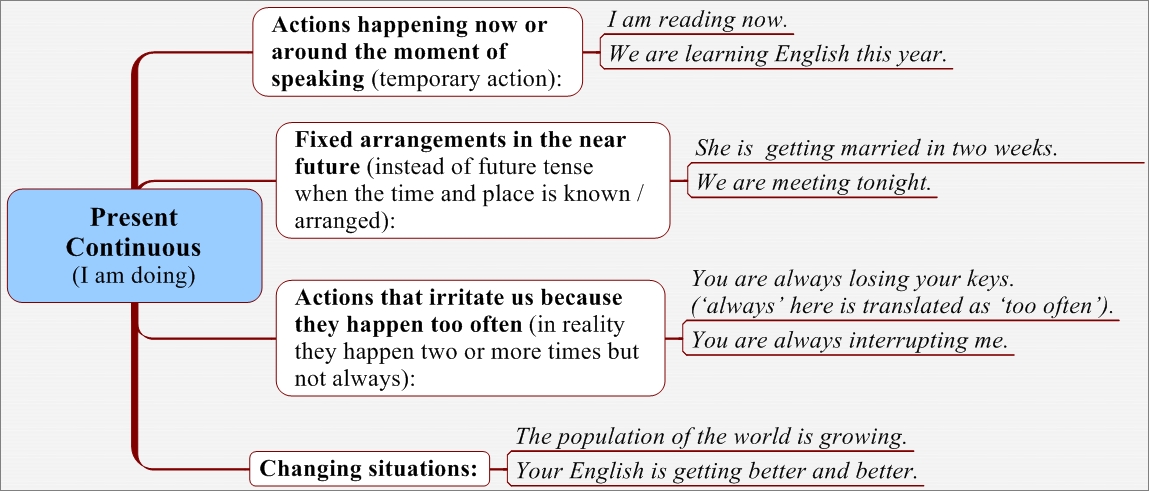 Study again with us: + He is driving a car at the moment. ? Is he driving a car now? – Yes, he is / No, he is not (isn’t.)  Revision 3: Spelling rules of the present continuous: -Dance - dancing (he is dancing); smile – smiling (I am smiling). - Run – running: a final consonant is doubled when one preceding to it vowel is stressed (we are not running now); sit – sitting (she is sitting). BUT: open – opening (‘n’ is not doubled because a letter ‘e’ is not stressed). - Travel – travelling (we are travelling these days): final ‘l’ is always doubled in Continuous forms. - Final ‘-ie’ are changed into ‘-y’: lie – lying (he is lying in bed); die – dying (he is dying). BUT: try – trying. Note: There are verbs which are not used in continuous tenses. They are called state verbs (compare with active verbs: to go, to work, to write, etc.):
 Study Grammar reference first then the following sentences with state verbs: I hear you. I see a picture. He is kind. I like this apple. I love you. He knows what to do now. I think he has left. Do you like his new car? Ann is positive. It looks as if it’s going to rain. I understand you very well. I have a family. I want to be a florist. He knows a lot about computers. But some verbs can be used either as state or active ones. Study the examples: I think(I consider) grammar is not so difficult if you practice it a lot. BUT: I am thinking about buying a car. He is thinking of my idea. Tim has a car (he possesses it). BUT: He is having dinner now. I’m having a good time this moment. She is not having a bath at present. OR: The food tastes delicious. BUT: I am tasting the soup now. Help: Temporary – тимчасовий Fixed arrangement–раніше запланована дія Happen - відбуватися Too - занадто Irritate – дратувати Tonight – сьогодні увечері State verb – дієслово стану Sense – почуття Consider – вважати Perception – сприйняття Possess – володіти Practice – Grammar in use Task 1: Match the present continuous tense to the correct description. 1 She is looking for a new job these days. 2 He is flying to Rome in an hour. 3 More and more people are using the Internet. 4 I am watching TV now. 5 You are always talking at my lessons!
Task 2: Write sentences (+, - ,?) using the present continuous tense. e.g.: We / think of you (+) We are thinking of you. 1 what you / do now (?) 2 it / rain (-) 3 she / talk to her father at the moment (+) 4 the girl / painting a picture now (-) 5 you / make a big mistake (+) 6 where you / study at the moment (?) 7 she / play the violin very well (-) 8 you / talk too much (+) Task 3: Open the brackets. Use the present simple or the present continuous tense.
Task 4: Underline the correct tense.
Task 5: Complete the dialogue with the correct form of the verbs: the present simple or the present continuous. Policeman: What _________ (do) here? Josh: Nothing. Why? Policeman: We ask questions here. Josh: We_________ (wait) for our friend. Policeman: Where__________ (live)? Josh: 151, Churchill Road. Policeman: What are your names? Josh: I’m Josh and he’s my brother, Wayne. We __________ (not do) anything illegal, are we? Policeman: __________ (have) any form of identification? Josh: Yes. I __________(have) my driving licence. __________ you (want) to see it? Here! Policeman: It __________ (say) Dean Allen on this licence. Josh: Does it? Oh yes, it’s my dad’s. 3  . Conversational topic: “Family Values” . Conversational topic: “Family Values” 3.1. Pre-text work a) Answer the following questions about yourself. Family
Home
Lifestyle
b) Instructions for the reading:
3.2. Text A: My Family Every family is happy in its own way. We are happy because we are friendly and united. Happy or not, we go home to share our joys and sufferings with the members of our family. My name is Boris. I live with my parents, my younger brother and sister. Each of them is very special to me. My mother is a housekeeper. When I was a child she taught me many things to do. I was very curious and my mother was patient enough to listen to me and talk to me. I think I will bring my own children up in the same way. We will also keep family traditions and be attentive both to the young and aged members of the family. My father is very responsible and demanding at work; at home he is kind, helpful and ready to smile. I am the eldest but I always feel my parents’ love. As for my brother and sister, they are lovely kids. They are twins, six years younger than me. They are very vivid, love companies and have a variety of interests. From time to time, they quarrel with each other, but if a situation is serious, they keep together. I often recognize myself in their behaviour. That is why it is easier for me to understand their problems. And now some words about me. I am working for a building company. Though I have a diploma, I feel like becoming a student again. Our company is developing its business in Europe. Not to be behind others and to get a promotion, I have to master the English language as the means of communication. I am going to marry a fantastic lady. However, it is another story. Help:
Practice – Vocabulary in use Task 1: Give short answers.
Task 2: Ask general questions to the sentences.
Task 3: Translate into Ukrainian.
Task 4: Translate into English.
L  ESSON ONE. Part two 4. Grammar 4.1. Auxiliary verbs and questions We learn English for speaking. Questions are the basis of communication. Study four kinds of questions first and then practice them in speech. Remember: the more practice you have, the better you will speak to foreigners and understand them. 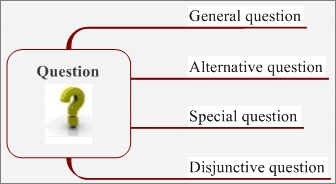
 b) Alternative questions:
 c) special questions: Special questions or Wh-questions begin with a question word such as Who, What, Which, Where, When, How long, How many (used with countable nouns) / How much (used with uncountable nouns). There are two kinds of special questions:
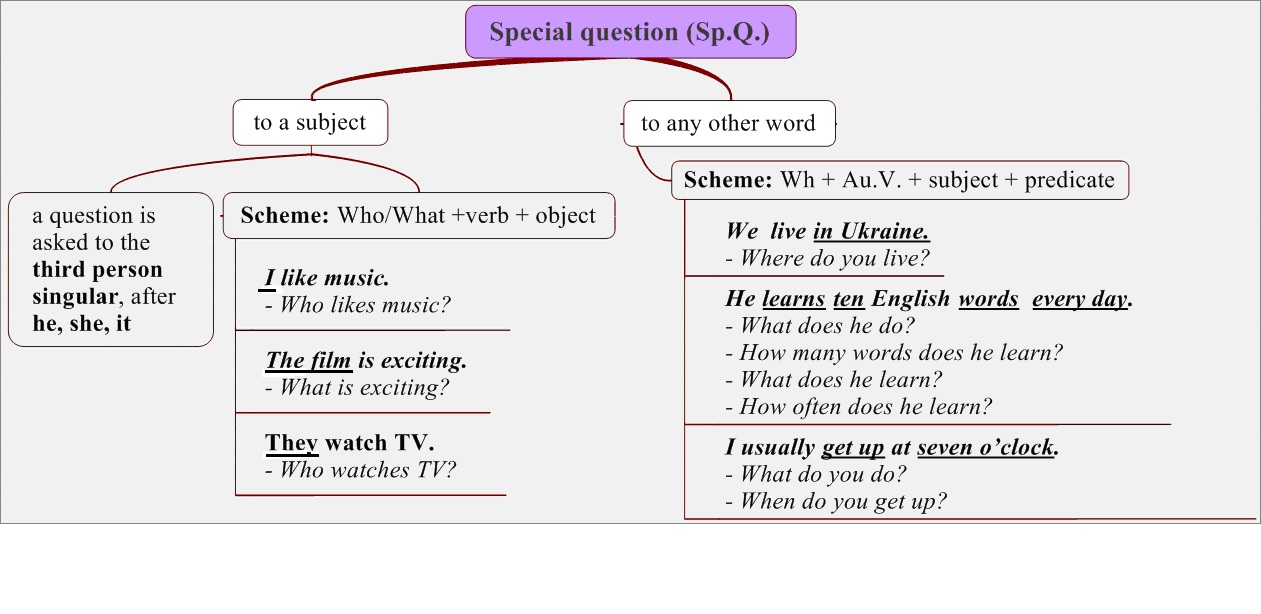 d) disjunctive / or tag, / or tail questions: Disjunctive question consists of two parts: a sentence + a question tail (чи не так?)  Help: General – загальний Alternative – альтернативний Disjunctive - роздільний Practice – Grammar in use Task 1: Ask five questions (general, alternative, special to a subject, special to any other word, disjunctive) to the following sentences:
Task 2: Complete the sentences with the question words: What kind? When? How many? How much? What? 1._________ tea or coffee do you drink a day? 2._________ do you usually get up in the morning? 3._________ of music do you like? 4._________ brothers and sisters have you got? 5._________ did you do last night?
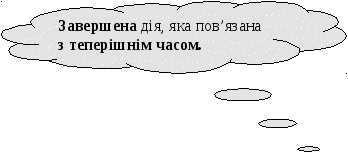 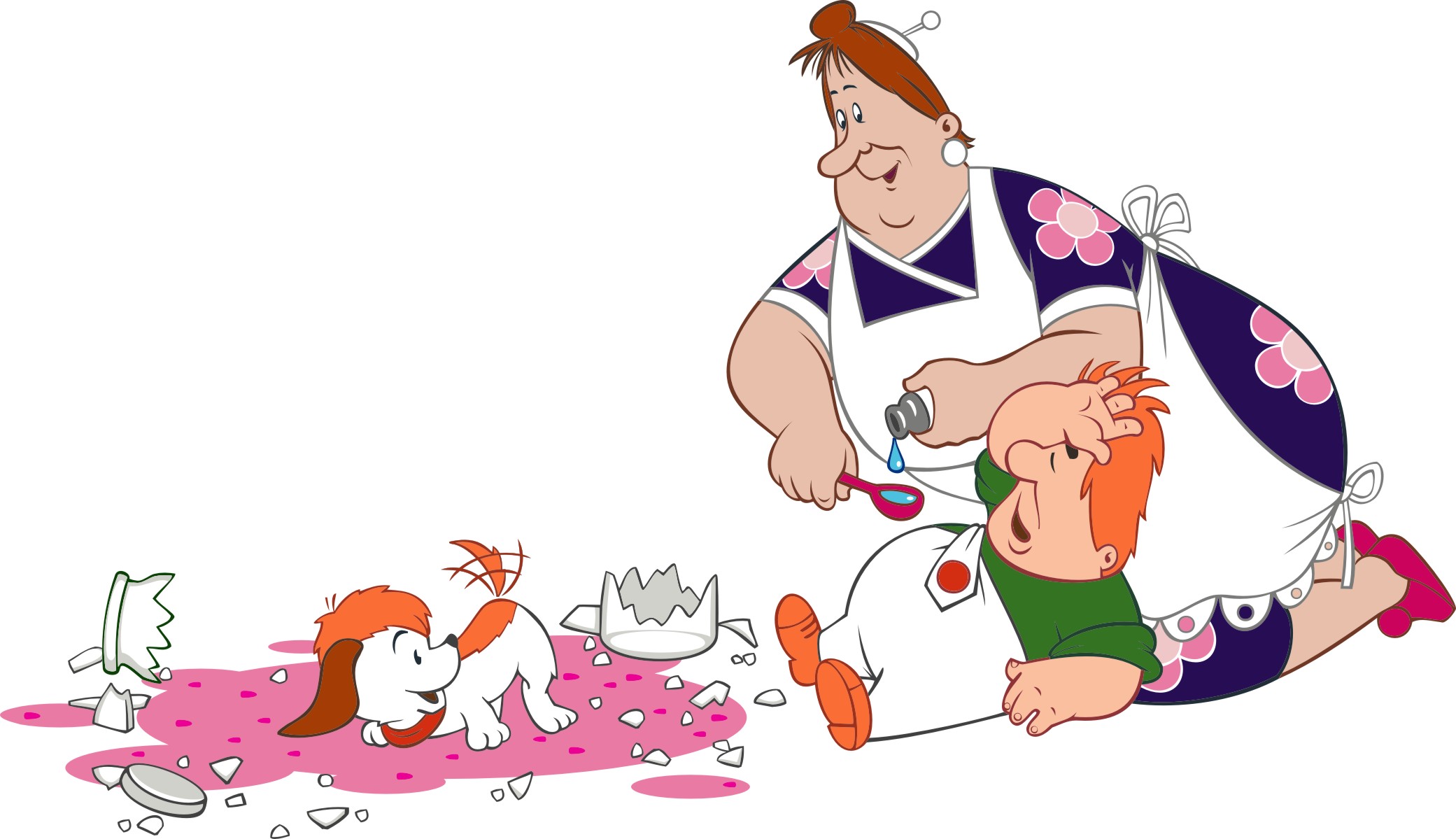 Revision 1:Study this example situation: Carlson is ill. He can’t eat jam. Why? - The dog has broken his jam jar. The Present Perfect and Present Perfect Continuous don’t exist in Ukrainian / Russian languages. But they are often used in English speech in different situations. Present perfect is used with an auxiliary verb ‘have (has)’ which is not translated but is used to differentiate this tense from other present tenses. 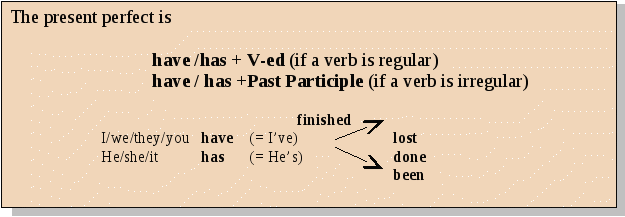  |
